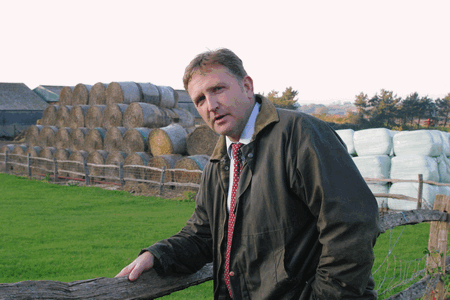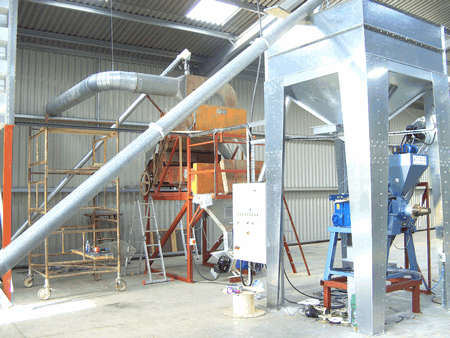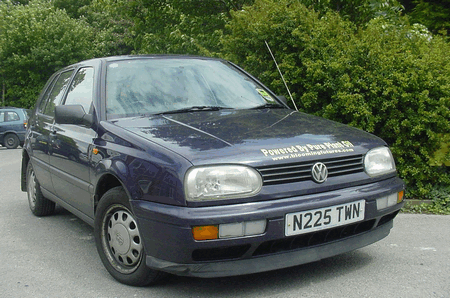Tackling farming’s Carbon footprint

Climate change and carbon footprints are key issues at Plumpton College in West Sussex, reports David Lamb in the latest College Farm Focus report.
I was at a farmer’s open evening at the South of England Show ground recently where an eminent scientist, Professor Philip Stott from the University of London, purported that climate change has been with us forever and farmers have been dealing with it on a daily basis since time began.
He also mentioned that in the great scheme of things the impact on climate change from UK greenhouse emissions amounted to less than 1% of global emissions and that if we all made the changes requested by the government and environmentalists, we would still be only making slightly less of an insignificant impact!
Whatever your viewpoint, be it political or environmental, there is a general consensus that as a society and individuals we need to be conscious of any of our actions which may have a detrimental effect on the environment, however small. To this end Plumpton College has been taking some small steps, hopefully in the right direction.

The starting point for us is to develop a better understanding of our carbon emissions or carbon footprint but this is indeed a difficult process to understand and calculate and involves having to make a variety of “guesstimates” and assumptions in the process.
For example when one calculates the impact from dairy cattle do we simply take the production of methane and carbon dioxide from the cow itself or does one include the energy used to manufacture the dairy cake or indeed the emissions from producing the tyres which are on the lorry that delivers the dairy cake?
It may sound a bit extreme but this Lifecycle Analysis might be the only way of truly identifying the total impacts. However, until the scientists can decide on the agreed process we have opted for a few tangible examples where we might make some improvements.
Carbon Footprint
Plumpton has been working with the Carbon Trust to look at ways to reduce emissions with the ultimate aim to be carbon neutral. They came up with a range of practical improvements around the campus such as energy saving light bulbs, improved double glazing and better monitoring of fossil fuel usage. Our new wine centre is heated using a geothermal heat pump.
We are currently working with the Farming & Wildlife Advisory Group (FWAG) to trial a software programme which aims to calculate emissions from the college farming activities. There are also a variety of programmes on the web which allow a similar process to occur but the assumptions they make in the calculations are difficult to ascertain.
However, plumbing our data into several of these options seems to show us having a carbon footprint of around 787 tonnes based on our current farming activities with the bulk of these being produced from our livestock activities (516 tonnes). The table below shows the breakdown and whilst the results could be out by any range of factors it does give us some pointers as to where we might target our efforts.
College Farm Emissions Summary
- Fuel / Energy 87.4 tonnes
- Livestock 516.8 tonnes
- Fertilizer 122.5 tonnes
- Crops 63.9 tonnes
- Forestry (2.74) tonnes
- Total Emissions 787.8 tonnes
Naturally being a mixed farm with arable cropping, dairy cattle, extensive sheep, intensive pigs it was no surprise that the livestock are having a major contribution to the emissions and for some enterprises like the extensive sheep and beef there is very little we can practically do to reduce these. However, looking at our sources of energy or perhaps making adaptations to the slurry system there could be scope to reduce emissions in these areas.

Bio fuels
Using plant oil as a fuel source has been widely documented in recent years and Plumpton has been running one of the college vehicles on rape oil for more than 2 years.
The college investigated the setting up of a cold press for plant oil and this was commissioned over 12 months ago. We have installed 3 holding tanks and 1 medium sized press with a processing capacity of pressing around 2 tonnes per day.
The idea is this will run on a continuous process giving a yield of around 330 litres of plant oil per tonne processed. The resulting oil will be used for fuel for the fleet of college minibuses and cars and the rape seed meal can be used to feed to the dairy cattle thus reducing transport issues for the system.

This demonstration facility is due to produce its first litres in the next few weeks and will show students, visiting school parties and other interested in the subject through demonstration and discussion.
The current high price for oilseed rape will certainly challenge the economics of the programme but this will allow Plumtpon College to make some headway in reducing the carbon footprint.
Why not register to come and see the new facility along with an exhibition on sustainable building techniques on 19th February 2008 at Plumpton College?.
This event is free but please register your interest with Gayle Barnard at Plumpton on 01273 892035 or email gayle.barnard@plumpton.ac.uk

